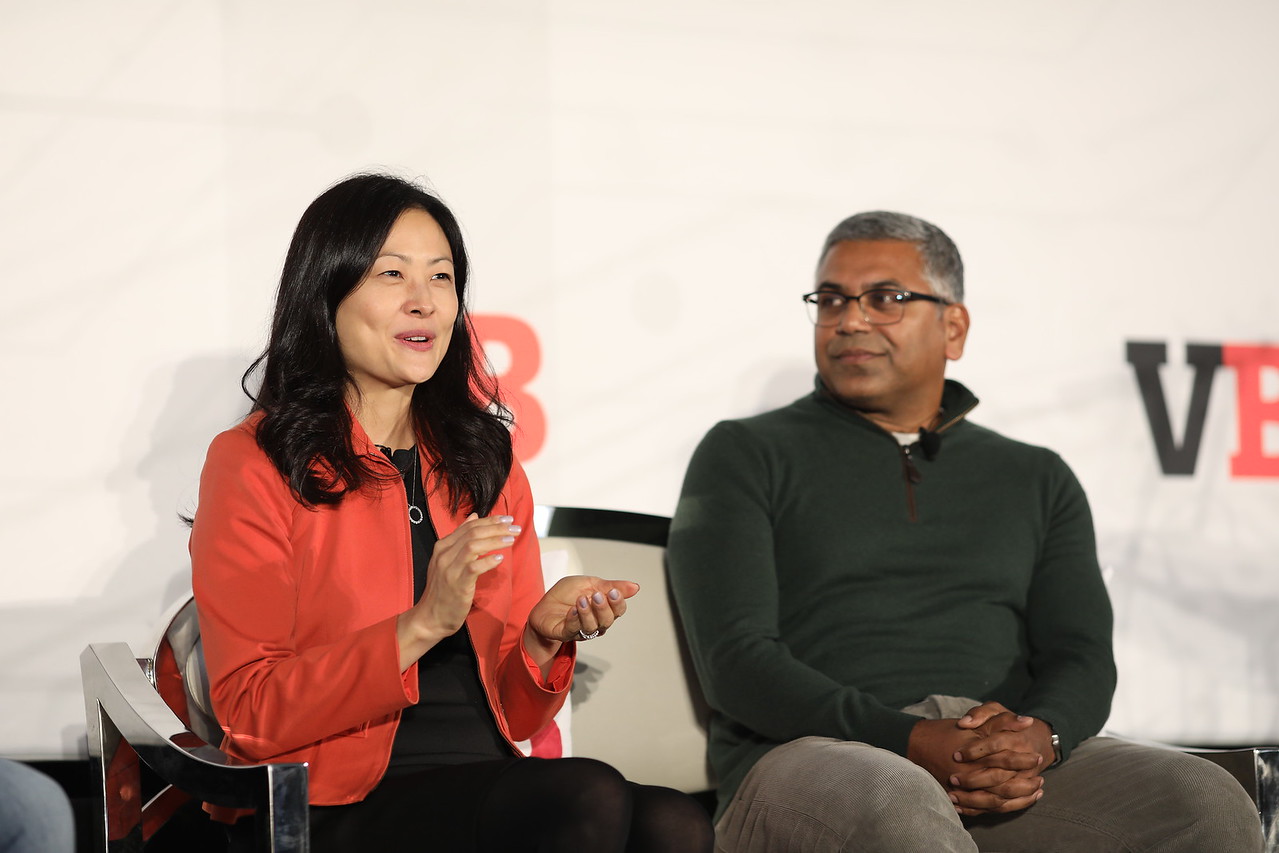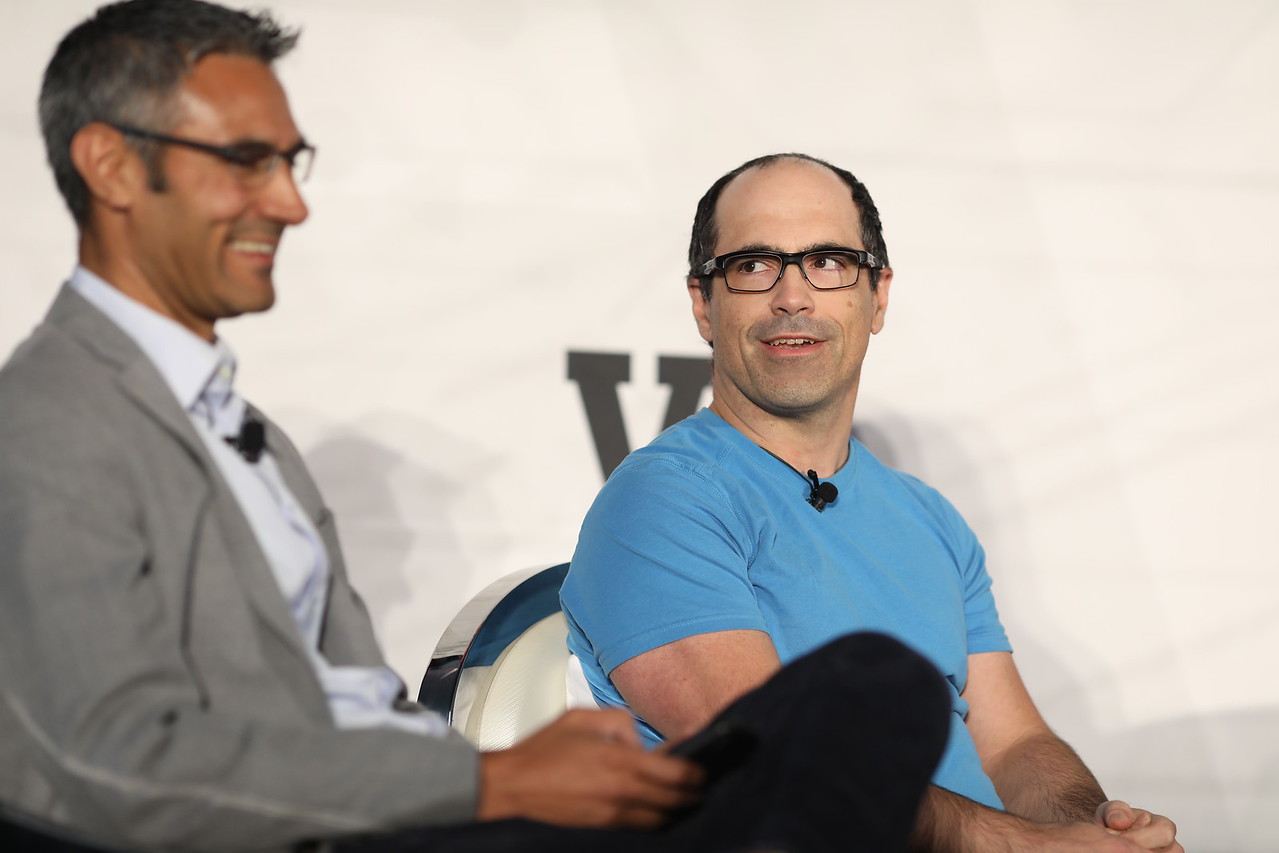Watch all the Transform 2020 sessions on-demand here.
Some smart companies are already making billions of dollars from their AI investments, but they have taken a long-term view to achieve those gains. And the more forward-thinking a company is when working on AI, the more likely the technology is to exceed their expectations.
These are some of the conclusions that emerged from conversations with leading executives at last week’s VB Summit, which focused on how AI is accelerating business results.
Leaders from Microsoft, Facebook, IBM, and Intel joined a “Titans in AI” panel at the end of the Summit that elaborated on some of these insights.
Another key finding is that personnel decisions and teamwork are critical. That might seem obvious, but executives said their specific learning over the past year has been that data scientists need to work very closely with domain experts because it’s the latter who really know the business context, and data scientists by themselves can often get it wrong. This is in contrast to common thinking as recently as a year ago, when many people believed AI could often make better decisions than people.
June 5th: The AI Audit in NYC
Join us next week in NYC to engage with top executive leaders, delving into strategies for auditing AI models to ensure fairness, optimal performance, and ethical compliance across diverse organizations. Secure your attendance for this exclusive invite-only event.
AI returns in the ‘billions’

Above: IBM’s Inhi Suh and Microsoft’s Venky Veeraraghavan speak at VB Summit
Arguably the most eye-opening comments came when the panelists were asked how they explain the value of AI to executives who may not fully appreciate its long-term benefits.
Three of the panelists jumped in to declare that some companies are already getting massive results, sometimes in the billions of dollars.
Microsoft, for instance, has customers obtaining returns in a variety of ways, explained Venky Veeraraghavan, Microsoft’s group program manager for cloud and AI.
Some use AI to get a tiny lift across millions of transactions, as with advertising. Others work to get a massive lift on a handful of transactions, in bidding on shale oil fields, for example, where oil companies use AI to run predictions about three or four times a year.
The return on investment (ROI) from such bidding can run into the hundreds of millions or even billions, said Veeraraghavan.
Many of IBM’s customers are also seeing “huge” returns from AI, agreed Inhi Cho Suh, general manager of IBM’s Watson Experience.
Intel, for its part, has realized over a billion dollars from selling its Xeon chips to companies running AI projects, said Intel CTO of AI, Amir Khosrowshahi. “It’s over a billion dollars, and that informs future investment and AI at Intel,” he said.
Take the long-term view
It’s important to emphasize the long-term view when it comes to implementing AI projects, Khosrowshahi and others agreed. In Intel’s case, the return came after making significant investments in processors and hardware architecture over the past few years. The state of machine learning — a key component of AI — is advancing quickly. “It’s very dynamic and changing, and the industry, and even the academics, underestimate the rate of change,” Khosrowshahi said.
Many executives speaking at VB Summit confirmed the need to invest for at least a year — and often longer — before getting significant results. Indeed, every company reporting that AI results have “exceeded their expectations” also reported having worked on AI for at least a year, VentureBeat found in a questionnaire of attendees and readers.
Consulting firm Deloitte, in a significant industry AI survey of more than 1,000 executives and other professionals released at the Summit, emphasized that operational discipline is key: “While AI’s upside is significant, haste can leave companies with bridges to nowhere,” said Jeff Loucks, executive director at Deloitte.
Onstage conversations at VB Summit confirmed the same: Etsy, for example, has seen its stock price rocket over the last year as the benefits of AI have kicked in. But it took a year to launch its AI product, after acquiring Blackbird technologies, explained Nikhil Raghavan, Etsy’s VP of product.
In exceptional cases, results can be more immediate.
Some IBM customers have seen gains within four months, especially in the area of marketing, noted IBM’s Cho Suh. Those companies managed to recoup their spending on technology and labor within that time, she said, by using Watson to increase engagement from their users and do more cross-selling or up-selling.
Separately, Chen Peng, head of data science at UberEats, told the VB Summit audience that the company’s initial results from AI were immediate, and partly explained how it hit a run-rate of $6 billion in gross sales only four years after its founding. That’s because it was able to tap into parent company Uber’s existing AI technology infrastructure. UberEats has a team of 40 data scientists and has been data-driven from the beginning.
“Put it in production, it was terrible”
One reason most successful AI projects take time is that moving from testing and training AI models to deployment isn’t straightforward. Three or so years ago, growing hype around AI caused executives to put too much faith in the power of data science alone, but the pendulum has swung back to domain expertise.
Microsoft’s Veeraraghavan recalled his experience working with deep learning at Bing three years ago: “We got all these great relevance models, and we were so excited about it. But when we tried to put it in production, it was terrible.” Having been burned, he said, Microsoft is helping customers learn from its experience.
For example, Microsoft has learned to pair data scientists, who mostly don’t have domain experience, with executives who do have such experience. Few companies have the luxury of bringing in many costly data scientists, so Microsoft advises customers on just how much data science is needed in each case. Increasingly, Microsoft is urging customers to consider automated machine learning tools, so that machines can do the AI training for them. “The science is getting to the point where the model-building can be made faster, and with less [data science] skill,” Veeraraghavan said. “But it doesn’t reduce the need for understanding the data,” he said.
A swing back to domain expertise
The other panelists agree that the focus now is more on domain experts who really understand the data and context of their field. The actual AI training can move quickly, but “it’s the data preparation piece that actually takes longer, and that requires the domain experts to help you,” said IBM’s Cho Suh.

Above: Amir Khosrowshahi (right), Intel’s CTO of AI, speaks at Summit
Intel’s Khosrowshahi provided another interesting anecdote to show how things have changed in the last few years. In 2014, a Romanian using a deep learning algorithm won a competition for Chinese character recognition, even though he had no knowledge of Chinese, Khosrowshahi recalled. “So there was this perception that you could use this really powerful new tool and neural networks to solve any problem without any domain knowledge.”
“That was a really counterproductive, a misperception … And we moved away from that to now realizing that a domain expert is absolutely critical to success,” he said. “You can make some pretty significant errors by assuming that the algorithm will learn itself and do all sorts of wonderful things. So it’s become a reality check.”
I’m really looking forward to where things head in 2019, when the focus for AI shifts to the line-of-business in organizations, away from pie-in-the-sky IT projects. I predict we’ll also see more industry-specific conversations around AI. That’s why we’re already planning our next big AI event, Transform, for July 8-10 in San Francisco. Save the date, and I’ll see you there. And if you have any great stories to share for that event, or for our ongoing coverage at our AI channel, please let me know here.


